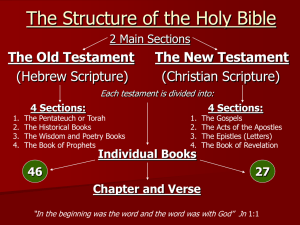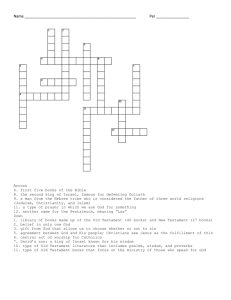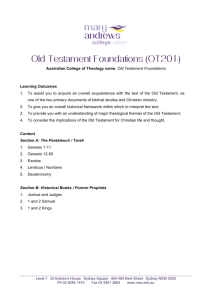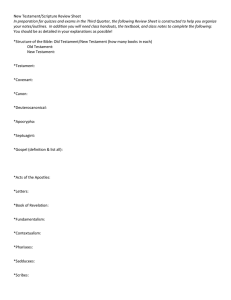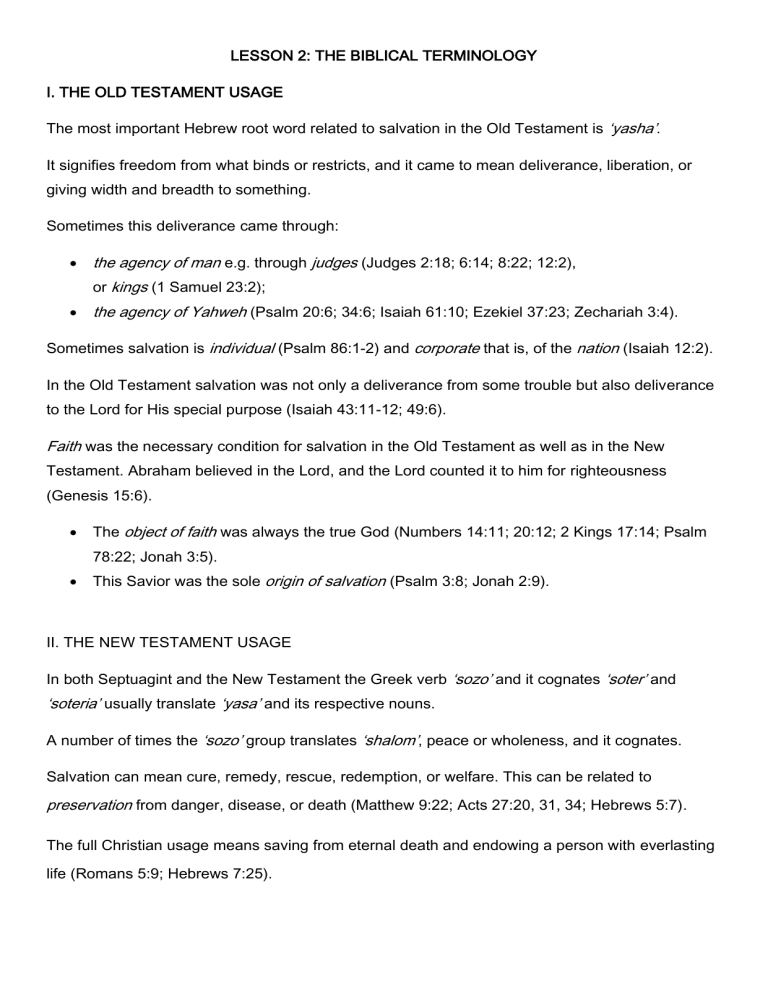
LESSON 2: THE BIBLICAL TERMINOLOGY I. THE OLD TESTAMENT USAGE The most important Hebrew root word related to salvation in the Old Testament is ‘yasha’. It signifies freedom from what binds or restricts, and it came to mean deliverance, liberation, or giving width and breadth to something. Sometimes this deliverance came through: the agency of man e.g. through judges (Judges 2:18; 6:14; 8:22; 12:2), or kings (1 Samuel 23:2); the agency of Yahweh (Psalm 20:6; 34:6; Isaiah 61:10; Ezekiel 37:23; Zechariah 3:4). Sometimes salvation is individual (Psalm 86:1-2) and corporate that is, of the nation (Isaiah 12:2). In the Old Testament salvation was not only a deliverance from some trouble but also deliverance to the Lord for His special purpose (Isaiah 43:11-12; 49:6). Faith was the necessary condition for salvation in the Old Testament as well as in the New Testament. Abraham believed in the Lord, and the Lord counted it to him for righteousness (Genesis 15:6). The object of faith was always the true God (Numbers 14:11; 20:12; 2 Kings 17:14; Psalm 78:22; Jonah 3:5). This Savior was the sole origin of salvation (Psalm 3:8; Jonah 2:9). II. THE NEW TESTAMENT USAGE In both Septuagint and the New Testament the Greek verb ‘sozo’ and it cognates ‘soter’ and ‘soteria’ usually translate ‘yasa’ and its respective nouns. A number of times the ‘sozo’ group translates ‘shalom’, peace or wholeness, and it cognates. Salvation can mean cure, remedy, rescue, redemption, or welfare. This can be related to preservation from danger, disease, or death (Matthew 9:22; Acts 27:20, 31, 34; Hebrews 5:7). The full Christian usage means saving from eternal death and endowing a person with everlasting life (Romans 5:9; Hebrews 7:25).
